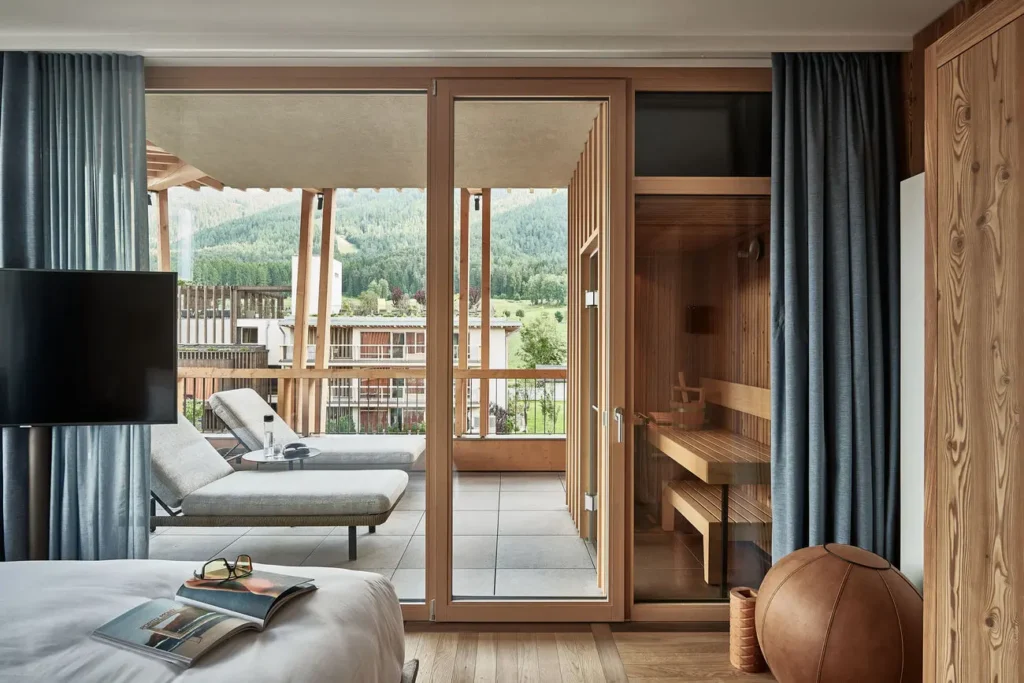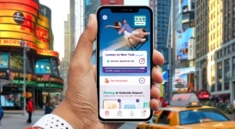
When planning a trip, lodging often takes up the biggest portion of your travel budget. Whether you’re staying at a boutique hotel, a luxury resort, or a humble hostel, getting better service and room upgrades without blowing your budget is an art—and a science. It’s not just about luck or charm. With the right knowledge, timing, and strategies, you can enjoy premium experiences for a fraction of the cost.
This comprehensive guide explores proven tips and insider techniques to help you upgrade rooms, get better service, and save significantly on lodging, making every stay more comfortable and enjoyable.
1. Be Loyal: Join Hotel Loyalty Programs
One of the easiest and most effective ways to receive room upgrades and better service is to join hotel loyalty programs. Major hotel chains like Marriott Bonvoy, Hilton Honors, IHG Rewards, and World of Hyatt reward returning guests with exclusive perks.
Benefits Often Include:
- Free Wi-Fi and late checkout
- Room upgrades (when available)
- Access to members-only rates
- Complimentary breakfast or amenities
- Priority check-in/out
You don’t need to be a frequent traveler to benefit. Even at the base level, these programs can give you an edge over non-members.
2. Book Directly With The Hotel
While third-party booking sites like Expedia, Booking.com, and Agoda offer convenience, booking directly with the hotel often results in better treatment.
Why Direct Booking Matters:
- Hotels save money on commission fees and often reward you for it.
- You’re more likely to get upgrades or flexible cancellation.
- Loyalty points can usually only be earned via direct bookings.
Some hotels offer price match guarantees, so if you see a cheaper rate elsewhere, you can report it and still book directly.
3. Timing Is Everything: Travel Smart
Just like flight prices, hotel rates fluctuate based on demand. Traveling during off-peak seasons or mid-week (Monday to Thursday) can dramatically lower your lodging costs.
Best Times To Book:
- For domestic stays: 1–3 weeks in advance
- For international stays: 1–2 months ahead
- Sunday nights often offer the best deals
Use flexible date search tools to spot cheaper days and keep an eye on events or holidays that could affect prices.
4. Master the Art of the Upgrade Request
You’d be surprised at how often a simple, polite request can get you a room upgrade. Front desk agents have more power than you think—but they’ll respond better to travelers who are respectful, courteous, and prepared.
How to Ask for an Upgrade:
- Ask during check-in with a smile: “Is there any chance of a complimentary upgrade?”
- Mention if it’s a special occasion (honeymoon, birthday, anniversary).
- Use specific phrases like “if there’s anything available” or “I’d really appreciate it.”
The key is not to demand, but to create an opportunity for them to go above and beyond.
5. Use Credit Cards With Travel Perks
Certain travel credit cards come with automatic elite status or benefits that can lead to room upgrades, late check-outs, and complimentary breakfast.
Top Cards To Consider:
- Chase Sapphire Reserve
- American Express Platinum
- Capital One Venture X
These cards may come with annual fees, but the perks—like travel credits, lounge access, and hotel benefits—often outweigh the cost if you travel frequently.
6. Book “Mystery” or Discounted Hotels Strategically
Sites like Hotwire or Priceline Express Deals let you book high-end hotels at discounted prices without revealing the hotel name until after payment.
Tips to Succeed:
- Use browser tools or forums (like BetterBidding.com) to guess the hotel.
- Choose 4 or 5-star properties with high guest ratings.
- Book in neighborhoods known for good hotels.
This method can save up to 60%—and if you’re lucky, you may land in a luxury hotel for the price of a 3-star property.
7. Leverage Last-Minute Booking Apps
If your travel plans are flexible or spontaneous, last-minute hotel apps like HotelTonight, Dayuse, or One Night can help you find upscale rooms at bargain rates.
Best Use Cases:
- Business travelers extending a trip
- Travelers waiting for connecting flights
- Urban escapes or weekend getaways
Hotels would rather fill a room at a lower price than leave it empty—your spontaneity could turn into a serious upgrade.
8. Don’t Overlook Boutique Hotels And Independent Stays
While chain hotels are reliable, boutique hotels and independent stays often offer more personalized service and greater flexibility when it comes to upgrades and amenities.
Why They’re Worth Considering:
- Fewer guests means more personalized attention
- Staff often go the extra mile to maintain good reviews
- Less rigid corporate policy on upgrades or perks
You’re also more likely to score free extras like welcome drinks, snacks, or late checkout.
9. Make Use of Email and Phone Communication
In a digital age, the personal touch still works. If you’ve booked a stay for a special occasion, emailing the hotel directly in advance can make a difference.
What To Include In Your Email:
- A polite introduction and confirmation number
- Mention of special occasions or loyalty status
- A brief request: “If upgrades are available, we’d love to be considered.”
This small gesture can help you stand out among a sea of faceless bookings.
10. Stay Longer, Negotiate Better Rates
If you’re planning to stay for several nights (especially 5+), hotels are more willing to offer better deals or upgrades. This applies particularly to independent properties and boutique hotels.
Tips:
- Call or email the hotel and ask for a “long-stay rate”.
- Suggest removing housekeeping on some days in exchange for a discount.
- Ask about weekly rates or packages not advertised online.
Extended stays reduce turnover costs for the hotel, making it easier for them to offer you perks.
11. Use Room Preferences Strategically
Certain room types are overbooked more frequently than others. Booking the cheapest room during high-occupancy periods increases your chance of being upgraded for free because your room category may be unavailable.
Key Strategy:
- Book the entry-level room.
- Arrive late in the day (after 5 PM) when upgrades are more likely due to room reassignment.
- Be flexible with room types (corner rooms, king beds, etc.).
Hotels often upgrade out of necessity, and this timing can work in your favor.
12. Leave Reviews, Tip Well, And Be Kind
Kindness doesn’t cost a thing—but it often results in better service. Front desk agents and hotel staff remember courteous guests.
Best Practices:
- Leave a small tip for housekeeping.
- Give staff positive feedback in person and online.
- Mention specific names in online reviews (TripAdvisor, Google, Yelp).
A guest who shows appreciation is more likely to be remembered on a return visit—and possibly upgraded next time.
13. Use Technology To Compare and Track Prices
There are now dozens of tools and browser extensions that help track hotel prices and alert you of drops or better deals.
Top Tools:
- Trivago and Kayak for cross-platform comparison
- Hopper to forecast price trends
- Google Hotels for a wide overview and flexible date searches
- Honey or CamelCamelCamel for browser-based price tracking
Set alerts on your desired hotels and watch as the rates fluctuate. Timing your booking right can save you hundreds.
14. Ask About Free Perks During Check-In
Sometimes, hotels won’t openly offer perks unless you ask. Common add-ons include:
- Breakfast vouchers
- Spa access
- Parking validation
- Welcome drinks or late checkout
Politely inquire about what’s available for guests, especially if you’re part of a loyalty program or celebrating an event.
15. Explore Alternative Accommodations
If hotels don’t meet your needs or budget, alternatives like Airbnb, Vrbo, or home exchanges may provide better value and more space.
Benefits:
- Full kitchens for saving on meals
- More privacy and local feel
- Discounts for weekly/monthly stays
Just ensure the listing has strong reviews, clear policies, and responsive hosts.
Conclusion: Travel Well Without Overspending
Traveling in style and comfort doesn’t require an unlimited budget—it simply requires smarter planning, communication, and flexibility. Whether you’re eyeing a luxury hotel or a budget-friendly stay, these techniques will help you get more for your money, enjoy better service, and create a memorable experience.
By mastering the art of strategic booking, politely requesting upgrades, and leveraging loyalty programs and tools, you can elevate any trip—without paying a premium. So the next time you check into a hotel, remember: luxury isn’t always about the price tag. It’s about knowing how to unlock hidden value.




